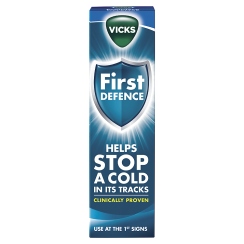Weasel words 2
In my first piece on weasel words, I looked at ways to massage hard facts in order to make them sound bigger or better than they really are. This follow-up looks at some useful ways for shaping the impression readers take away from the text, without necessarily implying anything factual.
‘Committed to’
Saying that you ‘commit’ to something gives the impression of diligence without actually, er, committing you to anything. Commitments sound firm and serious, but without concrete detail they’re just paper promises, making them ideal in situations where you want to give the impression of decisive action without the inconvenience of actually taking it.
‘Committed to’ is a staple of environmental and ethical statements where the firm wants to convey a moral stance without necessarily backing it up with action:
We are committed to reducing the environmental impact of our activities
A close relation is ‘aim to’, which evokes the businesslike setting of targets without actually specifying what those targets are – or explaining what you’ll do to achieve them.
‘Against’
Increasingly, firms feel they have to demonstrate their morality, in line with the perceived values of customers. On packaging, for example, they want to convince people that the product they’re buying is of good origin, and hasn’t been manufactured in an evil or destructive way. Unfortunately, reality sometimes gets in the way, so they have to resort to some slippery writing to muddy the waters. For example:
Against animal testing
Of course you are. Who isn’t? But that’s not the same thing as confirming that you don’t, in fact, do it. This verbless, subjectless sentence fragment cleverly floats the notion of animal testing being bad, and someone being ‘against’ it, without actually saying who that person is, or what real-world action has been taken as a result.
It’s a gamble on the probability that the inattentive customer – who’s probably reading this while they lather up the shampoo – isn’t going to think too deeply about what’s really being said. And it almost certainly works.
‘See if you can’
‘See if you can’ is a way of positioning an eye-catching outcome as inevitable, when in fact it’s all down to the reader to achieve it.
I haven’t been able to find it online, but I’m pretty sure a slogan along these lines was used to promote a ‘healthy’ breakfast cereal (possibly Special K):
See if you can lose 5lb in two months
The ads were carefully designed to foreground the desired outcome while soft-pedalling the obligations on the reader. ‘See if you can’ was set in relatively small type, while ‘Lose 5lbs in two months’ was absolutely colossal. The obvious, cynical aim was to make people think they’d lose that weight just by eating the product – rather than just see whether they could, which is something else entirely.
‘Helps to’
‘Helps to’ is a way to make a relative or partial claim in terms that make it sound absolute or total. For example, here’s a line from the packaging for Vick’s First Defence, a cold medicine:
Helps stop a cold in its tracks
As with the ‘lose weight’ line above, typography plays a part in managing the message. ‘Helps’ is fairly small, while ‘stop’ takes up the whole width of the box.
 Because stopping something in its tracks is a metaphor for bringing it to a complete and final stop, that’s the impression we take away from the line. But in fact it’s completely undermined by the ‘helps to’, which only promises that the product will make some undefined, unquantified contribution to stopping a cold. Which, when you think about it, isn’t really much of a promise at all – what else needs to occur in order for the cold to be ‘stopped in its tracks’, and how do I make it happen?
Because stopping something in its tracks is a metaphor for bringing it to a complete and final stop, that’s the impression we take away from the line. But in fact it’s completely undermined by the ‘helps to’, which only promises that the product will make some undefined, unquantified contribution to stopping a cold. Which, when you think about it, isn’t really much of a promise at all – what else needs to occur in order for the cold to be ‘stopped in its tracks’, and how do I make it happen?
The faux-scientific ‘clinically proven’ is the icing on the cake, giving the line a nice touch of men-in-white-coats authority. I’d be surprised if many OTC drugs reached the market without being clinically tested to validate their claims, so citing this to impress customers is disingenuous at best. It’s rather like Don Draper’s use of ‘it’s toasted’ to promote Lucky Strikes – taking the unavoidable and making it desirable.
Comments (5)
Comments are closed.
I hate using weasel words, but sometimes I just have no choice.
Some products are underachievers and need some help (God bless their wretched, even-vomiting-over-them-would-improve-them souls.)
Other times a CEO might insist on saying something that can’t really be backed up.
I’m not above tricks though. I’m happy to ‘turn a trick’ to get the job done.
I’m so glad I don’t work in B2B public relations any more. The [expletive deleted but it began with B and ended in KS!) they speak makes me despair. Being paid to write it would kill me.
Thanks for teasing out the real meanings Tom.
Fi ;o)
I used to do evening classes at a college that claimed to be “committed to valuing diversity”. It made my head spin.
Speech writers, spin doctors, ad agencies and business use weasel words to hide truth and complicate meaning. Thanks, Tom, for explaining the puffery of weasel words.
[…] Weasel words 2 […]